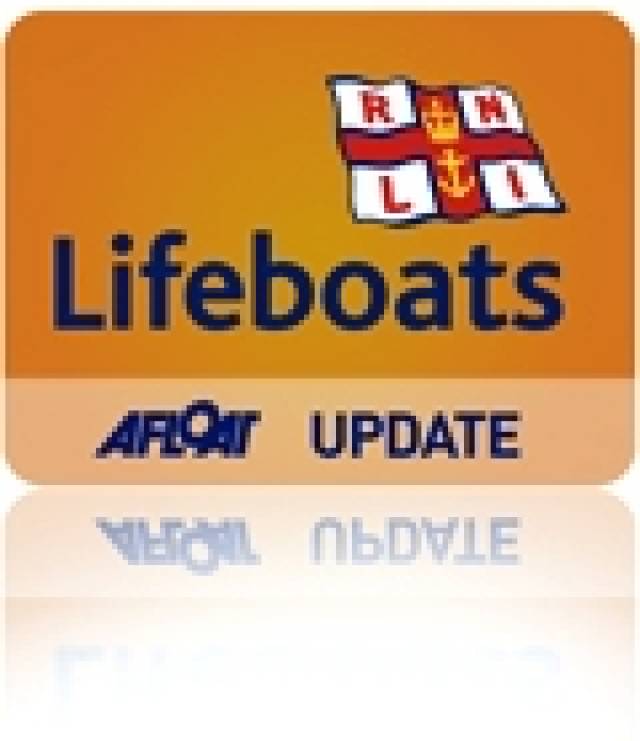#LIFEBOAT – Volunteer lifeboat crew took to Dublin's Grafton Street to launch the RNLI's MAYDAY campaign in Ireland, which is proudly supported by John West. The charity is asking the public to get behind its lifeboat crews in Ireland by donating on 1 May or by holding their own fundraising event.
Funds raised on MAYDAY will go towards the training of volunteer lifeboat crews and the operation of RNLI lifeboats across Ireland.
Lifeboat crew and their D-class inshore lifeboat, received a warm reception from the public on Grafton Street. Crewmembers Sharon Pollock from Newcastle, County Down, Joss Walsh, Luke Malcolm and Ian Martin from Howth all volunteer for the RNLI. Being a lifeboat volunteer means they must wear a pager full time to alert them when there is a Mayday emergency call, night or day. It means dropping everything, leaving the workplace, their families or the comfort of their beds to launch the lifeboat and assist those in trouble at sea, whatever the conditions.
Sharon Pollock (31) has been a volunteer lifeboat crewmember for the past eleven years. 'I wanted to join the lifeboat crew since I was a little girl. Every Mayday call is different. Saving a life at sea is hugely rewarding, as it's often carried out in challenging conditions. Sadly we are faced with tragedies too and returning a loved one to their family is important part of the work the RNLI do.'
Commenting on the Mayday campaign RNLI Corporate Partnerships Manager Michelle Noone said, 'We are delighted to have the support of John West for the RNLI's first MAYDAY in 2012. John West know firsthand the reality of the power of the sea, and fully support and appreciate the work the RNLI do in saving lives every day throughout Ireland. We would like to thank them for their wonderful support.'
John West MD Brendan Murphy said: 'We have worked closely with the RNLI fundraising team to come up with the MAYDAY initiative. We are hoping that 1 May will become synonymous with Irish people playing their part in saving lives at sea. We appreciate any donations that are made to the RNLI, no matter how small.'
The collection will take place on Tuesday 1 May. RNLI collectors will be out in force raising funds. Every cent the RNLI receive will help train and equip the lifeboat volunteers.
For details and information on how to donate go to www.mayday.rnli.org. or call 01 895 1837































































